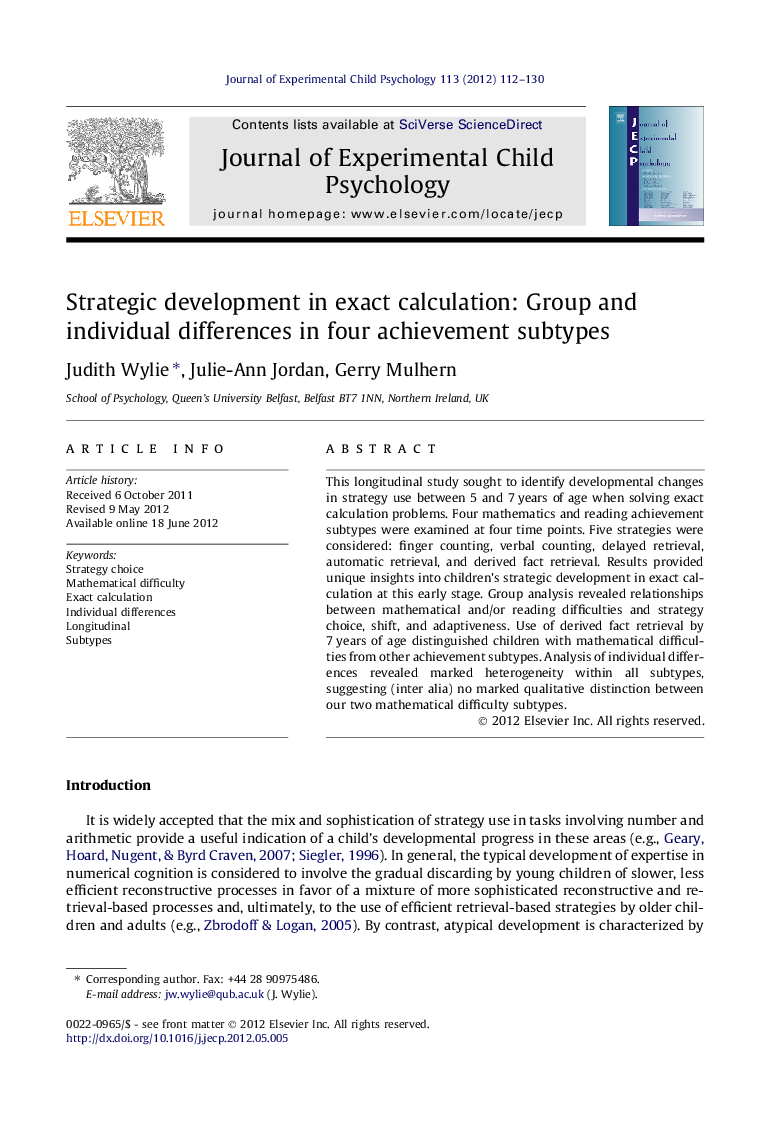| Article ID | Journal | Published Year | Pages | File Type |
|---|---|---|---|---|
| 918326 | Journal of Experimental Child Psychology | 2012 | 19 Pages |
This longitudinal study sought to identify developmental changes in strategy use between 5 and 7 years of age when solving exact calculation problems. Four mathematics and reading achievement subtypes were examined at four time points. Five strategies were considered: finger counting, verbal counting, delayed retrieval, automatic retrieval, and derived fact retrieval. Results provided unique insights into children’s strategic development in exact calculation at this early stage. Group analysis revealed relationships between mathematical and/or reading difficulties and strategy choice, shift, and adaptiveness. Use of derived fact retrieval by 7 years of age distinguished children with mathematical difficulties from other achievement subtypes. Analysis of individual differences revealed marked heterogeneity within all subtypes, suggesting (inter alia) no marked qualitative distinction between our two mathematical difficulty subtypes.
► We compare strategy choice of four achievement subtypes in exact calculation. ► We study children younger than previously studied longitudinally over two years. ► Children with math difficulty show markedly different strategy use and effectiveness. ► MD and MDRD subtypes show more similarities than differences. ► Findings demonstrate the need to consider individual differences.
